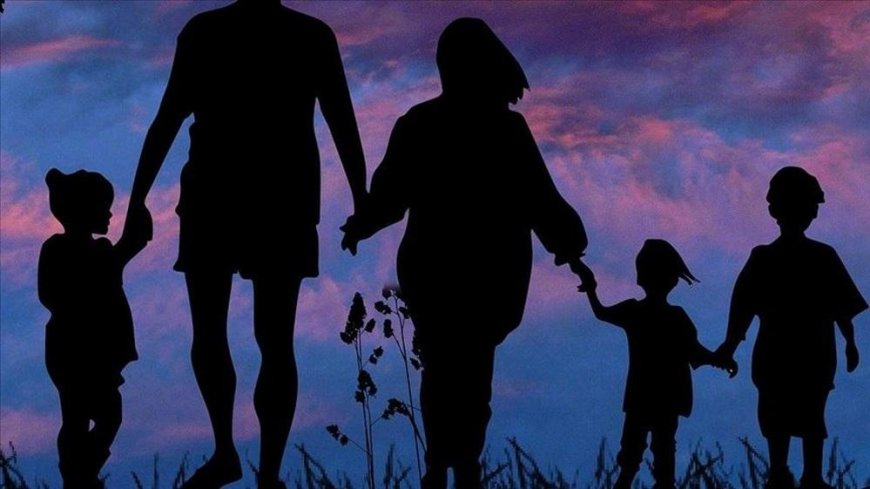How to prepare our children for the future next
she will build her own career in a particular field. But in which? What do we know today about how to prepare a children for the future?

Please imagine today's child, boy or girl, who is eight, nine or ten years old. Imagine her life in twenty years. The calendar will be 2035. This child will be about thirty years old; she will build her own career in a particular field. But in which? What do we know today about how to prepare a children for the future?
It is likely that seeing works that we know well today will match or even attribute their existence to 2035. Those who see cooperate with them, if you do not know. Parents, teachers and politicians who decide how to create children for their lives in the distant future. But let's be honest: we often work on making similar decisions around.
Ideally, we should learn as much as possible about what the world will be like in the future, and try to bring our principles and rules, as well as efforts to educate children, in line with the potential model of this near future. In fact, most of our efforts are at best today. We have too little idea of ‹‹our future.
What do we know about the future quite accurately?
Based on what is emerging and changing now, we can say that:
- Our lives and work will be carried away by the next waves of changes.
- There will be more work to involve international relations, and citizenship will become more global.
- There will be more multidisciplinary, multidisciplinary work that will require new types of cooperation.
- Much more work will be done using digital devices and intelligent systems.
- More elements of visual communication will be used in work and life.
- The world will tackle sustainable development and stability in ways that reach the maximum number of workers.
- As society confronts new and new challenges, the number of civic responsibilities will increase, and they themselves will become more and more complex.
Must Read: Games and technology
Nine skills children need for the future
Preparing for uncertainty requires a transition from the specific, the specific to the more general, from the work skills we can identify today to the skills that will prepare the child for an uncertain range of future development options and constant change. What are these skills?
- Love of learning - love of learning as such, without defining for yourself the specific skills and knowledge that we will need. After all, the desire to learn always brings a person greater success. It comes from children's experience, when learning, although difficult, is still interesting, exciting, useful and fun, and also includes what the child really wants to learn on their own.
- Skills to acquire knowledge - the ability to learn can also be learned, and it should be at the center of the school curriculum. It includes cyclical efforts to develop and develop skills to acquire new knowledge and gives children the opportunity to analyze and learn about how they can learn even better.
- Self-knowledge - self-knowledge - is a leading skill. Its important component is modesty, and another, no less important, is self-confidence and one's own strength. A child who works on self-knowledge will grow up to be a person who can and wants to talk to different people in order to listen carefully to them, learn something new for themselves and continue to learn further.
- Compassion - children can be naturally self-centered and therefore often selfish. There is a way out. We can teach them to understand in what situations and in what condition are other people, to understand the point of view of other people. A child who develops a sense of understanding of other people will be a strong employee and companion.
- Communication, communication - includes oral, written and increasingly visual communication, which will be the basis of most types of work. Sociability can be developed through sensitivity, compassion, which, in turn, improve and strengthen the skill of cooperation.
- Life wisdom - not all learning takes place in school. Compare the benefits of a child who was in the capital and saw the life of the capital with a child who never left his village. Or, to be fair, with a child who lives in the city and has never seen a farm or village.
- Self-confidence in difficult situations - the world does not turn for simple reasons and consequences, and complex questions do not provide answers "black" or "white". Our world is full of unpredictability and complexity. Learning and understanding its meaning is important for success in work and life in general.
- Goal setting - Successful people learn to set goals and achieve them. For the employer, this means that they are productive. For the person - personal success and growth.
- Impartial mind - no success is possible if we do not teach children to become open, flexible, thoughtful, impartial people. Their world will constantly change and offer new and new tasks, so to be strong and prepared requires the ability to easily adapt to change, look impartially and always be open to new information.
Innovative curricula around the world already focus on developing at least some of these nine skills, often focusing on experiential learning, collaboration, and focusing on the student's own interests, needs, and motivations.
But while innovative curricula continue to improve, the pursuit of the "good old days" can offset interest in developing such skills. And this will mean the loss of depth and strength that we must instill in the minds of young people around the world. Let's remember this.
